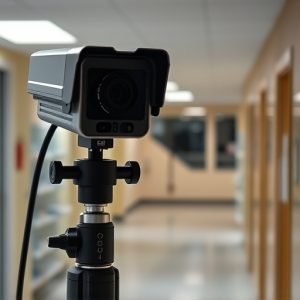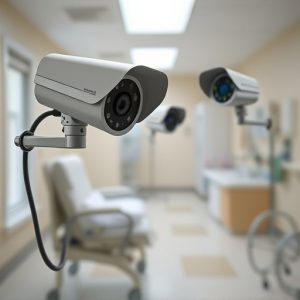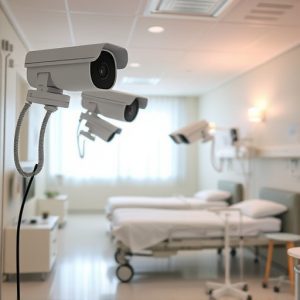Cameras for Nursing Homes: Enhancing Safety with Smart Surveillance
Installing cameras in nursing homes is a crucial security measure that enhances safety and well-bein…….
Installing cameras in nursing homes is a crucial security measure that enhances safety and well-being by preventing misconduct, aiding emergency responses, assisting staff training, and providing residents with peace of mind. Nursing home security cameras come in various types, each offering unique benefits for monitoring resident safety. However, their implementation requires a delicate balance between surveillance and privacy, adhering to strict regulations and data protection laws while strategically placing cameras in common areas or during high-risk activities to respect residents' dignity.
In today’s digital era, enhancing security in nursing homes is paramount. Cameras for nursing homes serve as vital tools for ensuring resident safety, preventing abuse, and providing peace of mind for families. This comprehensive guide delves into the importance of security cameras, exploring optimal types and placement strategies to create a safe environment. We also navigate privacy considerations and legal aspects, offering essential insights for facilities aiming to implement effective surveillance systems.
Understanding the Importance of Security Cameras in Nursing Homes
In the realm of elderly care, ensuring the safety and well-being of residents is paramount. Cameras for nursing homes play a pivotal role in achieving this goal by providing continuous surveillance and offering peace of mind to both caregivers and family members. With an increasing aging population and more residents relying on nursing home care, having robust security measures in place is essential.
Nursing home security cameras serve as vigilant eyes, deterring potential misconduct, abuse, or unauthorized access. They facilitate quick response to emergencies, assist in staff training by offering visual feedback, and provide valuable evidence during investigations. Moreover, these cameras contribute to a sense of security for residents, knowing that their activities are being monitored and that any unusual behavior can be promptly addressed.
Types and Placement of Cameras for Optimal Safety
Nursing home security cameras come in various types, each offering unique benefits for monitoring and ensuring resident safety. The most common are fixed cameras, strategically placed to cover key areas like entrances, exits, and common spaces. These offer a clear, unobstructed view, ideal for round-the-clock observation.
For enhanced flexibility, wireless cameras with HD recording capabilities can be installed in bedrooms, bathrooms, and other private spaces. This allows staff to remotely monitor residents’ well-being without compromising privacy. Additionally, motion-activated cameras can detect unusual activity, prompting a swift response from personnel, thereby improving overall safety measures for nursing home residents.
Privacy Considerations and Legal Aspects of Nursing Home Surveillance
Implementing cameras for nursing homes can significantly enhance security and surveillance, but it also raises important privacy considerations. Nursing homes house vulnerable individuals who require close monitoring while also expecting a level of privacy and dignity. It’s crucial to balance these two needs effectively. Placement, access, and recording practices must be meticulously planned to ensure residents’ privacy is respected at all times. Cameras should only record where necessary, such as in common areas or during specific high-risk activities, rather than continuously monitoring individual rooms.
Legally, the use of surveillance in nursing homes is subject to various regulations and laws designed to protect residents’ rights. These vary by jurisdiction but generally require explicit consent from residents or their families, clear notification of camera presence, and limited access to recorded footage. Nursing homes must ensure they have adequate policies in place to handle these recordings securely and responsibly. Compliance with data protection laws is essential to avoid legal repercussions and maintain the trust of both residents and their loved ones.


